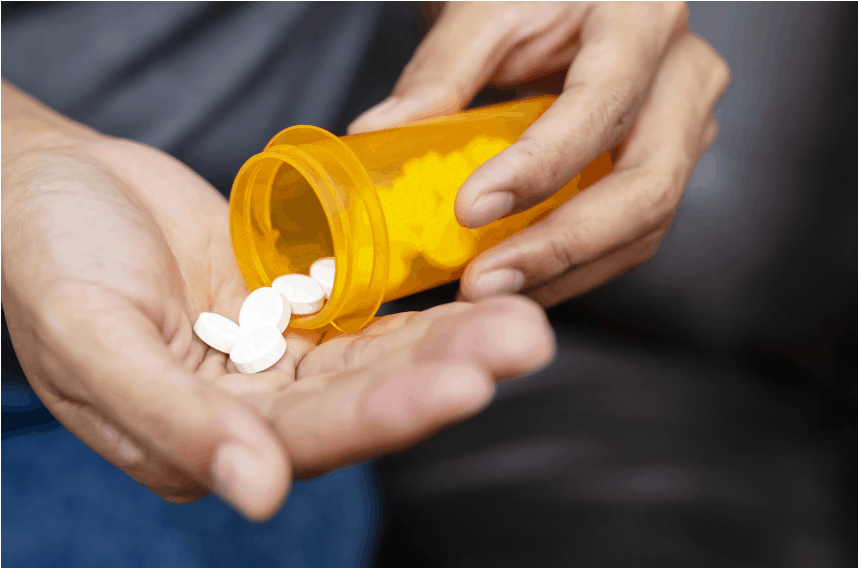Abuse of Ritalin can have a serious impact on people and their relationships. When you abuse this drug for a long period, it can lead to several negative medical and psychological effects. People may have a faster heartbeat, higher blood pressure, mood swings, sleeplessness, and hunger suppression. When you use this stimulant, it can also damage relationships since the user may get consumed with getting and using the medication and neglect their obligations.
Ritalin addiction frequently comes with trust concerns, breakdowns in communication, financial pressure, and emotional distance, all of which hurt the general stability and well-being of both individuals and their relationships. The first step to obtaining assistance and starting a journey of rehabilitation and healing is realizing these difficulties.
What is Ritalin Abuse and Its Effects
Ritalin or methylphenidate is a central nervous system stimulant drug that is typically administered to treat attention deficit hyperactivity disorder (ADHD) in both children and adults. This drug is given to patients in different dosage forms, allowing for differing lengths of time that it is effective. These dosage forms include immediate-release tablets, extended-release tablets, and long-acting capsules.

The Potential for Ritalin Misuse and Addiction in Couples
The possibility of being addicted to this stimulant can have a variety of effects on couples. Substance abuse, whether it is through unauthorized usage or taking higher amounts than recommended, can have several detrimental effects on a couple’s relationship. The euphoria, greater energy, and improved focus that this substance can produce may at first appear enticing. However, continued abuse can lead to dependence and addiction, which presents some difficulties for relationships.
Ritalin acquisition might take center stage, putting pressure on joint tasks, communication, and trust. A relationship’s emotional dynamics may be impacted by the side effects of Ritalin abuse, such as mood swings, impatience, and diminished motivation.
Impact of Ritalin Abuse on Relationships
Abusing this stimulant can have a serious effect on relationships, influencing a variety of factors. The effects of addiction by one or both partners may have far-reaching effects. Because Ritalin abuse entails secrecy, lying, and a lack of openness in the relationship, trust is frequently jeopardized.
The non-abusing partner could experience betrayal, confusion, and doubt regarding their loved one’s actions. As the emphasis changes to obtaining and abusing this substance, communication might degrade, leaving little room for true connection and emotional intimacy. The relationship may become even more strained if the abusive partner goes through mood swings and starts acting anxious, withdrawn, or irritable.
The expense of addiction may cause financial issues, which may result in disputes and stress. As Ritalin abuse takes precedence over shared objectives, obligations, and emotional well-being, the relationship’s overall stability, support, and quality may suffer. Addressing these issues, restoring trust, and developing a healthier, drug-free relationship can all be facilitated by working jointly to seek treatment through drug rehab.
What are the Benefits of Couples Rehab for Ritalin Addiction
It is crucial to address addiction as a couple because it acknowledges that addiction affects not just the individual but also the dynamics and health of the relationship. A complex web of issues, such as problems with trust, poor communication, and shared codependency, is frequently brought on by addiction.
Couples can offer each other support, empathy, and accountability during the recovery process by approaching addiction as a partnership. Together, they can identify triggers, come up with coping mechanisms, and establish a drug-free environment. Speaking openly and honestly about the effects the addiction has had on the relationship while dealing with it as a couple promotes recovery, restores trust, and strengthens emotional ties.
Couples rehab and therapy in treatment programs offer the chance to clarify shared values and goals, create new patterns of interaction, and ultimately construct a strong foundation of love, support, and sobriety for the future.
It Promotes Shared Experiences and Understanding in Recovery
Couples therapy has many advantages for spouses moving toward recovery. The shared understanding and experiences that come with going to treatment together are a significant benefit. Both people can relate to the difficulties and tribulations encountered during addiction treatment, which fosters a strong sense of friendship and support.
Couples can strengthen their commitment to sobriety and gain strength from each other’s accomplishments and losses by going through the recovery process together. Sharing this journey creates a special link that makes it easier for partners to connect and empathize with one another’s experiences, feelings, and triggers.
Strengthening Communication and Trust
Couples therapy offers the chance to improve communication and reestablish trust in the partnership, which is a key advantage. Communication that is open and honest is frequently eroded by addiction, which causes misunderstandings, secrecy, and animosity. Effective communication techniques, such as active listening, assertiveness, and conflict resolution, which are essential for healthy relationship dynamics, can be learned by partners during couples’ therapy.
Couples can explore their previous hurts, address underlying issues that contributed to the addiction, and reestablish trust through therapy sessions. They can become more open and vulnerable, communicate their wants and worries, and create a common language of recovery that fosters communication and healing. A healthy and more durable relationship can be built on top of the communication and trust that can be rebuilt in a secure and organized environment such as couples’ treatment.
Building a Supportive Network within the Relationship
Couples rehab also enables partners to create a network of support within their union. Addiction can cause partners to feel isolated and distant from one another while also straining relationships. Couples in recovery have the chance to interact with other couples dealing with comparable issues, developing a sense of community and mutual support. Group therapy and peer support meetings give people a forum to talk about their issues, gain insight from others, and get encouragement. To establish a supporting network inside the partnership, both partners must foster an atmosphere of accountability where they hold one another accountable for upholding sobriety and using healthy coping skills.

How Does Ritalin Rehab Work in Couples
Couples rehab often uses a thorough, individualized treatment strategy that considers the special requirements and dynamics of each partner in the relationship. An overview of how couples’ Ritalin rehab might function is provided below:
Assessment and Treatment Planning
The couple goes through a thorough evaluation by addiction specialists who look at their pasts as individuals and as a couple, their patterns of substance use, their mental health, and any co-occurring disorders. A customized treatment plan is developed based on the assessment results to address the unique needs of each partner while taking the dynamics of the relationship into account.
Detoxification and Withdrawal Management
To properly manage the withdrawal symptoms if Ritalin dependence or addiction is present, a detoxification procedure may be required. In this stage, both spouses’ physical and mental well-being is ensured by medical supervision and assistance.
Individual and Couples Therapy
To address their particular problems, and underlying problems causing Ritalin abuse, and develop coping mechanisms, both partners attend individual treatment sessions. Couples therapy sessions are held concurrently to enhance communication, reestablish trust, and address any relationship issues that may have developed as a result of the addiction.
Group Therapy and Support Networks
With other couples or people in recovery, the couple could take part in group therapy sessions. These meetings offer chances for peer support, experience sharing and learning from those who have dealt with comparable difficulties. For ongoing support, support organizations like 12-step programs or other recovery communities might be helpful.
Holistic Approaches and Coping Strategies
To encourage general well-being and relapse avoidance, couples rehab may include a variety of holistic techniques and coping mechanisms. This can involve exercises in mindfulness, strategies for managing stress, modifications to one’s lifestyle, and activities that promote intimacy and connection in relationships.
Aftercare Planning
A thorough aftercare plan is created to aid the couple’s transition back into regular life when the recovery program is finished. This may entail continuous individual and couple’s counseling, routine follow-ups with addiction specialists, participation in support groups, and access to neighborhood resources that can offer ongoing assistance in maintaining long-term recovery.
It’s vital to remember that depending on the treatment center or program, the precise design and elements of rehab for couples may change. The ultimate objective is to offer a thorough and integrated strategy that addresses both individual and relational needs, promoting healing, recovery, and a future where everyone is healthier and drug-free.
Seek Medical Help Today
Rebuilding relationships and attaining long-term recovery from Ritalin addiction require couples’ rehab. Couples have a rare chance to heal together while addressing the effects of addiction on both the individual and the relationship. Partners can re-establish trust, enhance communication, and create joint sobriety maintenance plans by participating in recovery together. Couples therapy not only concentrates on personal healing but also gives partners the resources and encouragement they need to build a stronger, more fulfilling future together.



